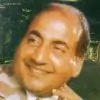You must have patience to read this article it is a long one about Indian reality shows. I am just putting some important parts of the article here. You can read the full article here.
Link:
https://www.tehelka.com/story_main43.asp?filename=Ne270210coverstory.asp
AN EXODUS OF YOUNG INDIANS LEAVES HOME EVERY YEAR IN SEARCH OF THE BRIGHT LIGHTS OF REALITY SHOWS. BUT WHAT HAPPENS TO THEM AFTER YOU SWITCH OFF? GAURAV JAIN TRACKS THEIR STORIES
LUCKNOW AT 10pm in January feels like the end of the universe ' dark, fog-bitten, still, with the odd rickshaw creaking past. A capacity crowd has packed into an auditorium to celebrate Mayawati's birthday. The delicately double-chinned Dear Leader is not present herself, but that doesn't slow the officials' hectic praise or the folk dancers' proclamations that she'll ascend to be "Bharat's PM". Sitting demurely in a corner is a 28-year-old woman, dressed in a glamorous sequined white chikan kurta, whom all of Lucknow knows ' Poonam Yadav is the one true celebrity roped in for the event, and the crowd is getting testy for her. Eventually, Poonam's turn comes and, ascending the stage, she launches into a practiced concert of favourite Bollywood standards.
Since Kaun Banega Crorepati first sprang onto our consciousness, dozens of talent-based reality shows have mushroomed in India. Dance India Dance. Indian Idol. The Great Indian Laughter Challenge. India's Got Talent. Each of these shows hold auditions in over 10 cities, descending like divine carrots from the sky, and thousands of young people throng to them. Each show then has addon competitions (for kids, for kids and mothers, for couples). And each show has clones. Mumbai is just the dizzy centre: every show has regional replicas going in Gujarati and Bengali and Marathi. Imagine the gargantuan spread, and you get a real measure of the energy field.
There is huge money to be made out of this subculture one could call Talent TV. Money that is trading on that most profound resource: the human desire for recognition. The young see reality shows as a way of escaping their small horizons: the shows pick them for precisely that reason. This narrative arc ' the desire for escape and the potential for escape ' makes for great viewing. It is little wonder then that reality shows have become the biggest phenomenon in Indian television after the saas-bahu serials. They are cheaper to programme than full-scale soaps and hang their success on massive audience participation, which can run into crores of SMSes for the bigger shows. (Channels, in fact, often make more money from these shows from telephone company tie-ups than from advertising.) The market is so fecund, desperate producers running out of ideas have begun to throw up amalgamate contests, where winners from past shows compete against each other. Or more ludicrously, the young are asked to prove themselves as the most passionate fan of some superstar, or in the case of Star TV's latest show, Mahayatra, as the most loving and dutiful child ' a la Shravan Kumar, the epic character who carried his blind parents in a basket to pilgrimage points across India.
The ideas may be drying, but not the well of longing. To become somebody.
So what of these young people themselves, cannon fodder in TRP wars? What becomes of them when the arc lights go out? A select few, showing the same pluck that got them on air, stay on in Mumbai and turn their transitory fame into a revenue model ' performing around the country in big venues and even abroad. Talent TV, in fact, has birthed a secondary market which never existed in India before, with B-level celebrities performing live at events of every hue, corporate, governmental and political, and at festivals and weddings. A much larger number though just have to walk the reverse arc back to anonymity, returning home to its dissatisfactions and now even narrower horizons. You may have forgotten their names but they have not forgotten their attempt to get out.
It is difficult to imagine the impact of Talent TV juggernauts hitting mofussil India. Lakhs audition for the bigger shows like Dance India Dance; thousands turn up for smaller ones like MTV Roadies. Often you can register for an audition with just an SMS. To cash in on these maniacal events, talent agencies like Two Tulips have spread octopus feelers deep into the crevices of most of India's small towns. Their local coordinators keep tabs on talent emerging in schools, colleges, festivals, neighbourhood clubs. They know that only talent will not do: their pick must have a saleable life story.
Through one such audition, Poonam pole-vaulted herself out of anonymity into the arena. Once there, the introverted Poonam jostled her way through to fourth place. Post-show (with contestants still in dizzy freefall, coming to terms with the extreme emotions of elimination or victory),it's common practice for channels to sign two-year contracts with contestants and organize live shows for them. (Sony reportedly takes 20 percent of the proceeds; Zee reportedly takes 50. Industry sources say that, on average, the winner of a Talent TV show can command anywhere from Rs 2.5 to 3 lakh per performance, while the second and third runners-up take between Rs 1 to 2 lakh each. The top 10 finalists of a hit season are assured at least Rs 1 lakh per performance while the top bracket of a flop season can still command around Rs 50,000. Someone like the first Indian Idol winner, Abhijeet Sawant, is now said to charge around Rs 4.5 lakh per live show.)
But to make this money, celebrityhood must first be manufactured. Poonam came home to Lucknow the first time to a grand welcome, organised by Zee. She landed at 1am to find 10,000 people waiting at the airport and her neighbourhood. A band was playing; security protected her from choreographed mobs. Her stardom was birthed by Caesarean.
When her mandatory stint in Mumbai was done, Poonam took up a job with the Railways as a booking clerk in Lucknow ' something Laloo Prasad Yadav had publicly promised her while she was on the show. Then last year in March, she tried to kill herself. Newspapers reported rumours of her being pregnant and an aborted affair with music director Ismail Darbar ' which both deny vehemently. "He and his wife were like parents to me. No one wants to publish what I have to say. Those rumours are all anyone wants to hear, but I'm ready to take medical tests," says an angry Poonam. But scandal was not her only travail. She returned to find everyone she had grown up with was jealous of her success. "Even people who taught me music. People just want you to look backward for a second and trip." Everyone in Lucknow now knows her and this more than anything else tires her.
LAST WEEK on Valentine's Day, 27- year-old heartthrob Meiyang Chang, son of a dentist in Dhanbad, took his girlfriend out for an expensive dinner in Mumbai. Though nervous about the bill, he felt happy he could afford such things. Silver-tongued, articulate, intelligent, this third-generation Chinese immigrant could well be the poster boy of Indian Talent TV success ' of what is possible if things go right.
After Indian Idol, Meiyang signed with Sony BMG along with three other fellowfinalists to form the boy band F4, and they cut an album Tu To Na Aayi. He returned the next season to co-host Indian Idol, and expects to be invited again next season. The posters are out for an upcoming Yash Raj film Badmaash Company, where he's acted alongside Shahid Kapoor.
Every evening Meiyang pumps iron at an Andheri gym. He's a photographer and blogs long, considered posts on everything from rural living to Mumbai traffic to alcohol. Dhanbad could never have contained his ambition. Perhaps it's because he's Anglophone, perhaps because he's never known desperation, fame sits lightly on him. He has gelled hair, fashionable glasses and the right rips in his jeans ' all that's necessary for a youth icon. He's relaxed about doing his duty by his stardom and lets his charm carry him through the world. A dentist in Dhanbad can earn a lakh per month, he says, but there wouldn't be much to spend it on.
If one were doing a controlled experiment on what can happen to reality show contestants, one would look at two others ' also from Dhanbad ' who like Meiyang were finalists in Indian Idol: Abhishek Kumar and Puja Chatterjee. This troika, all from the same small town, has had three distinct post-show trajectories.
Meiyang came fifth but went on to be the considerable success he is. Puja came sixth and Abhishek eighth. Soon after the show, Puja moved back to Dhanbad, from where she often travels to give live shows. The 21-year-old says, "I've been singing for the last 16 years. I know this is what I have to do." Since Bollywood isn't knocking yet, she sings playback for Bengali movies and takes it as an experience that will cycle her back to Mumbai eventually.
But parochial frenzy is exactly what the producers of Talent TV are counting on. Ask Sumedha Karmahe ' the lissome beauty in the red dress on the cover of this issue. Some years ago India watched a group of B-town girls being fabricated on live television into quintessential American teenagers. The pop band Viva! was short-lived, but that transformation is exactly what Sumedha was longing for.
The daughter of an accountant mother and sports teacher father in Chhattisgarh's Rajnandgaon ' a town famous for its temple, now infamous for its Maoist trouble ' Sumedha came fifth in Sa Re Ga Ma Pa 2007. She now lives in Mumbai where she is a successful playback singer. Her sister ' archetypal urban teenager tapping on an iMac ' and mother Sarla have moved in with her. Sumedha ' impeccable in her all-day gloss ' does many live shows and a few reality shows. She is training her voice and considering hiring a manager for the next climb in her ladder: to become a pop star. This is the exact life she always wanted.
Back on the show, Sumedha had been corralled into being "Chhattisgarh ki Barbie doll". That played a big part in her becoming a finalist, yet home is not an option anymore for her. While the show was still on air, she had been flown back to Chattisgarh by the channel for her "profile shot" ' to acquaint audiences with her local flavour. To her shock, her welcome wagon was organised by local politicians who wanted a bite of the publicity. She was put in a security motorcade, cars ahead and behind. It was organised much like an election rally and there she was, she says, also asking the public for SMS votes.
She has been back to Rajnandgaon only once after that on what she calls a "silent visit". "If I refuse to go for someone's lunch, people accuse me of having changed. I haven't, they have." Even her mother Sarla, now used to Mumbai's noise, is startled by quiet Rajnandgaon and now prefers the busier capital, Raipur.
Sumedha remembers her months sequestered in the show's bungalow along with other contestants as a time of sleeplessness. Two days of 20-hour shoots in a week; one day for song selection and two days promoting the show. Then one day you blink and the show has ended. The twilight zone was over, the whole country suddenly seemed to know her. "You never see the change coming," she says.
GLITTERBUGGING IS difficult business and its stories of success and failure, dreams withheld and dreams accomplished, stretch endlessly. Ishmeet who died. Gwalior's Shini Kalvint who lost. Howrah's Sanchita Bhattacharya who won at 14. Deepali from Patna now a Bhojpuri star. And Prashant Tamang, the constable from Darjeeling, who triggered a riot.
Whatever the score, Talent TV is an emotional tightrope, where sometimes the desperation can weigh too heavily and break the finest balance. You might be terrified but you better not wheedle. You might be anxious but you better not sweat. You might be hungry but you better be nice. Sometimes these youngsters have trained for years and sometimes they're trying a fluke shot, but invariably they have to deal with a rapacious world they've suddenly been thrust into.
Talent TV's poster boy Abhijeet Sawant sums up the lunar landscape. "These shows can be dangerous. The organisers get innocent seedha saadha small-town folks and put them in situations they've never dealt with. The whole thing becomes a natak. They do end up exploiting the common man." Sandeep Acharya, from Bikaner and an Indian Idol 2 winner, says he never wants to return to the reality format: "I see people taking part again and again. You have to just take your change and run. That's all."
Javed Jaffrey, comedian and judge, says, "Everyone thinks this is an instant shortcut to riches. Parents dress their kids in tarty outfits and too much make-up, and make them dance to grown-up, seductive songs." Wadkar agrees, "Contestants get desperate, their parents get desperate. They get anxious to hang out with big people, and want the dazzle and autograph hunters. They think anybody can get up and become Kishore Kumar. They forget it took 40 years to become Kishore."
But none of these stories or caveats catch the whole picture. The creative gene unleashed. The sea of young people in Mumbai, mostly in and around Andheri, who came expressly to live off their talent ' but now find themselves living off their wits to avoid the city's legendary squeeze. The key thing is, they can never be nobody to themselves again.
Perhaps Flaubert was right, after all ' talent is a long patience. Some grow maddened waiting for their own big lucky strike as they stay put on the TV show carousal. Some remain giddy, goosebumped, gutsy. They are here in Mumbai. And they are out there, back in that always-unexpected place ' home.
































